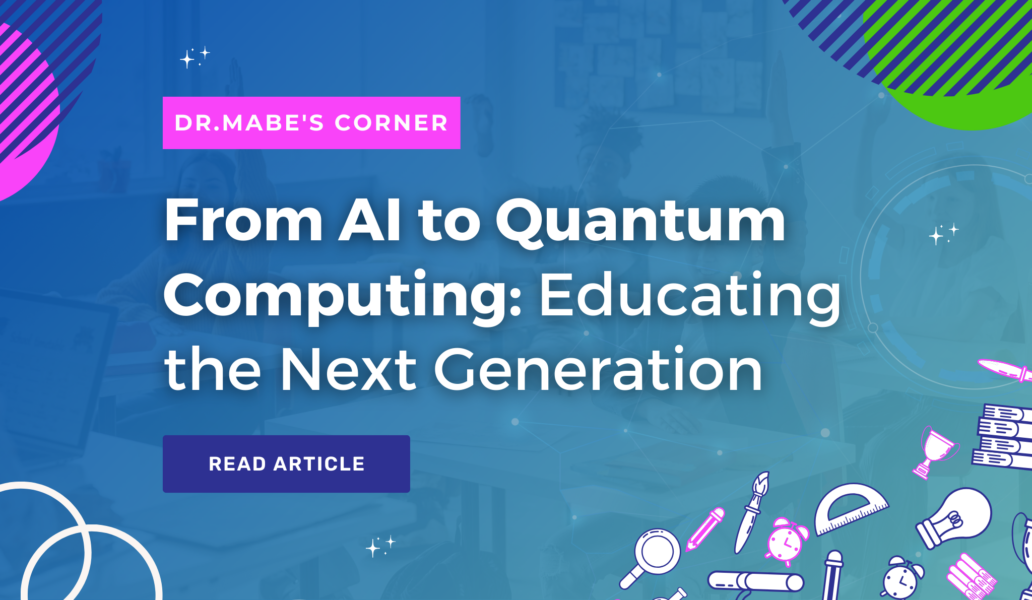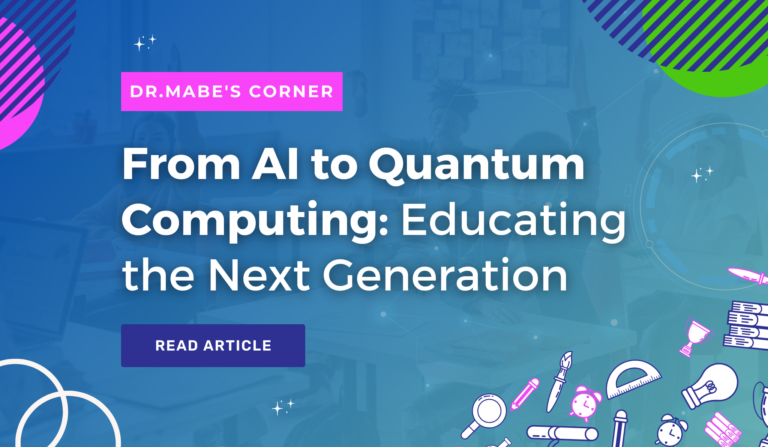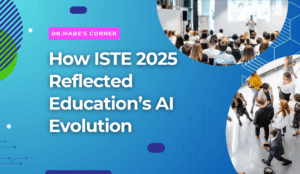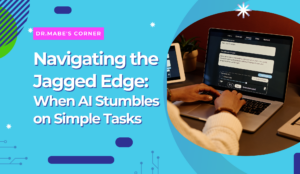
When I first started teaching, I thought my role was to teach the students the curriculum and hard skills. Eventually, through some amazing professional development offered by my school, I had an ideology shift. I began to see my role was actually to prepare my students for the future. This change in mindset completely invigorated my interest and love of teaching.
At first, this meant finding ways to help my students develop the soft skills, like the 4Cs, which include creativity, critical thinking, communication and collaboration. However, at the beginning of 2023, I quickly realized for my students to truly be prepared for the future, I also needed to model and teach AI Literacy. This began a whole new adventure that has been both exciting and terrifying at the same time, and something I am still learning how to do.
Even though I am still getting used to the fact we now live in a post-generative AI world, I read about something at the end of 2024 that may create even more changes: We are getting closer to Quantum Computers. Simply, you can think of quantum computers as super-powerful machines that process information totally differently than your laptop. Instead of just using 1s and 0s like regular computers, they use special quantum bits that can be multiple things at once – kind of like being in two places at the same time.
This weird quantum behavior lets them tackle really complex problems way faster than normal computers. If you want to dive deeper, you can read more about Quantum Computing and what it is here.
In December, Google introduced Willow, their newest quantum chip. The thing truly shocking about this new advancement:
“Willow performed a standard benchmark computation in under five minutes that would take one of today’s fastest supercomputers 10 septillion (that is, 1025) years — a number that vastly exceeds the age of the Universe.”
A number that vastly exceeds the age of the Universe. I would say Let that sink in, but how can you, really? To attempt to emphasize what a big leap this is, the last major breakthrough was in 2019 with Google’s Sycamore. Sycamore was a mere 10,000 years faster than the fastest classical computer.
Quantum computing will significantly impact so many aspects of our life. From security, to medicine to traffic to climate and to of course education. In a post titled Embracing the Quantum Leap: Preparing Educators for Tomorrow’s Tech Revolution, Clara Lin Hawking says, “Time is running short for curriculum providers and policymakers to initiate this vital shift in learning paradigms, preparing students for a future where quantum computing is not just a specialized field, but a fundamental part of the technological landscape they will navigate.”
In the article, Hawking makes the case that students can already be introduced to age appropriate quantum mechanics. She argues:
- “For younger students, the curriculum might focus on sparking curiosity through interactive activities and simple concepts like superposition, employing storytelling and basic simulations.
- Middle school students could go deeper into the subject through hands-on experiments and discussions about the science and ethics of quantum mechanics.
- By high school, students could explore more advanced topics such as societal impact, quantum algorithms and their potential real-world applications, perhaps even gaining hands-on experience with quantum computing software.”
How are you helping to prepare your students for our rapidly changing world? What are your thoughts on quantum computing and education? We’d love to hear in the comments.





